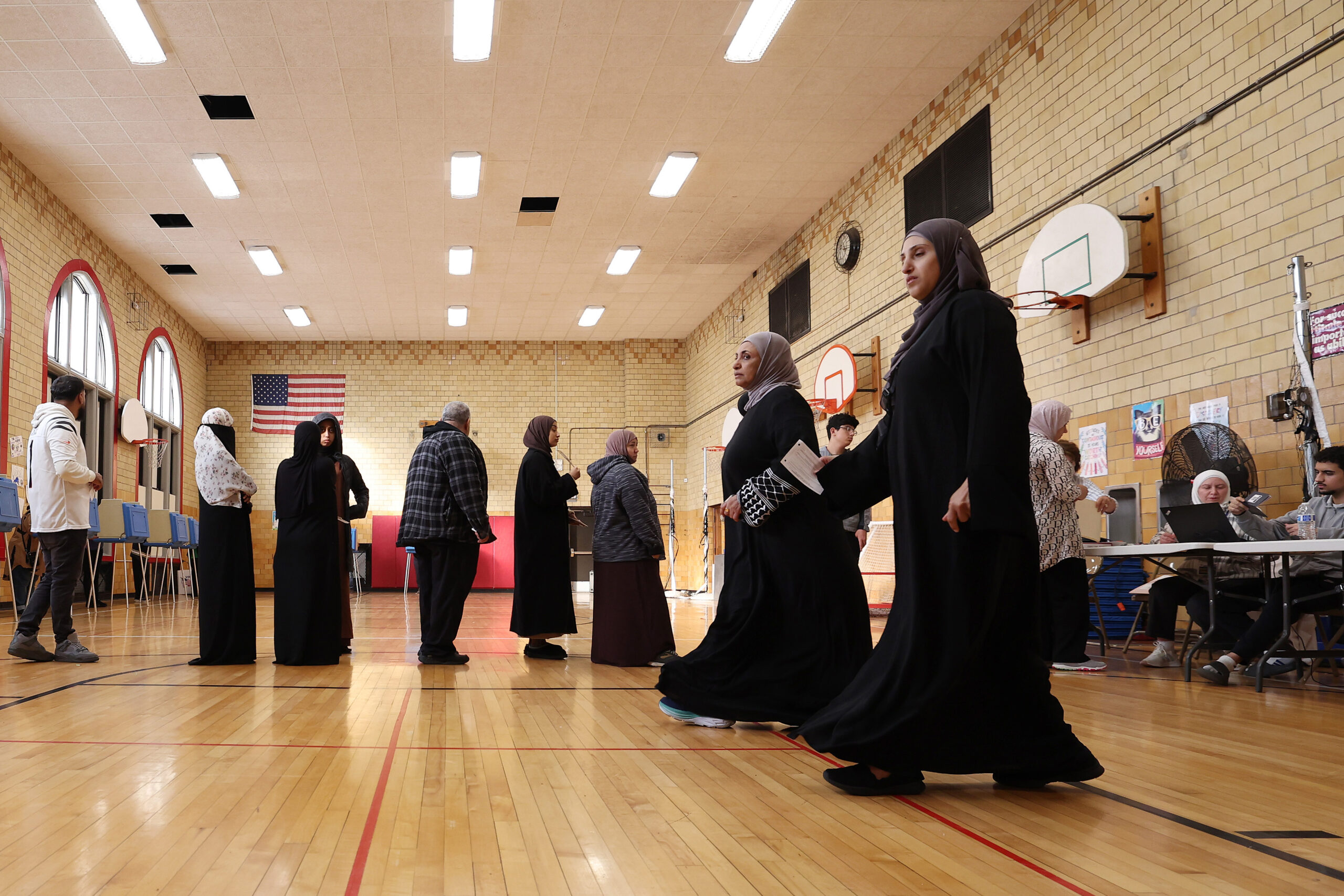
www.theamericanconservative.com
Can MAGA Conservatives and Muslim Americans Unite?
Politics
Can MAGA Conservatives and Muslim Americans Unite?
As the Republican Party leaves neoconservatism behind, new coalitions become possible.
One of the main takeaways from President Donald Trump’s election victory last year was the inroads he made with Hispanics and African-Americans, two large minority demographics traditionally associated with the Democrats. But the increase in support for Trump among Muslim voters, though less decisive electorally, was arguably more dramatic and should prompt reflection on the changing character of American politics.
Trump’s share of the Muslim vote increased from the 2020 election from 17 percent to 31 percent. Much of this increase was due to the Biden administration’s support for Israel’s war in Gaza, which alienated Muslims and Arabs in key battleground states. Michigan in particular has a sizable Arab and Muslim population, which Trump courted on the campaign trail. Frustrated by Joe Biden’s support for Israel’s assault on Gaza and his failure to get a ceasefire, many Muslim voters chose to vote for Trump, third-party candidate Jill Stein, or did not vote at all. The uptick in the Muslim vote share for Trump is especially striking given Trump’s rhetoric in the 2016 election, when he called for a ban on Muslims entering the country.
It should be noted that the Democratic Party’s near-monopoly on Muslim voters is a relatively recent development. Muslim Americans generally leaned toward the Republican Party until George W. Bush’s declaration of the War on Terror in 2001, which involved not only multiple invasions of Muslim countries but also enhanced surveillance of Muslims at home. Such policies naturally led Muslims to flee to the Democratic Party.
However, recent events suggest that Muslim Americans, not a monolithic community by any means, may be open to politically diversifying. This raises interesting prospects of a possible rapprochement with conservatives forces who themselves have gone through an evolution during the Trump years as the neoconservative wing has weakened and more populist and war-weary voices have emerged.
This shift has become more clear as the conservative movement has become split on the issue of Israel and the extent of American involvement in Gaza since Trump’s second term in office. While Republicans are still much more supportive of Israel than Democrats on average, some of the most emphatic and prominent critics of Israel are on the right, including Rep. Marjorie Taylor Greene (R-GA) and former Trump advisor Steve Bannon. More generally, a rising tide of young conservatives have grown increasingly skeptical of American support for Israel and the risk of American forces being drawn further into the Middle East. This development has drawn the attention of Muslim Americans deeply opposed to Israel’s Mideast wars.
The new, Israel-critical conservatives have sometimes extended rhetorical olive branches to Muslims. While anti-Muslim rhetoric is still commonly employed by Republican politicians like Congressman Randy Fine (R-FL) and pundits in conservative media, other prominent conservative voices like Tucker Carlson have called out the use of such weaponized language to whip the base into a frenzy. Of course, Muslim-bashing still retains currency among conservative circles, but the political benefits it confers have diminished.
To better anticipate whether there can be a space for Muslim Americans and conservatives to find some common political ground, it is important to also recognize the shift of the conservative base towards forms of identitarianism and Christian nationalism. White identitarian conservatives see Muslims not as an external enemy but as invaders whose presence in America and the West was enabled by liberal mass immigration policies. These anxieties are inflamed by cases in Europe of Muslim groups living in segregated ethnic enclaves.
Yet in America, the experience of Muslims has largely been one of successful integration. Muslims represent only slightly over 1 percent of the entire population, are economically much better off than their European counterparts and are generally scattered across the country. Over 70 percent of the Muslim-American population are second-generation, and they are the product mainly of legal immigration the past several decades. They have not arrived in massive waves across the border in a short recent period.
As for Christian nationalism, the faith-based objection to Muslims is nothing new and has been a feature of the conservative movement for the past two decades. Christian nationalist conservatives often present Muslims as a fundamental threat to Judeo-Christian values. But the drift of young conservatives away from support from Israel has also induced skepticism regarding this brand of evangelical conservatism.
Of course, MAGA conservatives will not embrace left-wing Muslim Americans who oppose fundamental tenets of conservatism. Muslims are frequently depicted as natural allies of the far left on a hidden mission to undermine Western civilisation, a fear that has visibly resurfaced with the rise of Zohran Mamdani, the Muslim Democratic Socialist and frontrunner in the New York City mayoral election. Yet Muslim voters differ politically from Muslim elected officials, who tend to be more ideologically left-wing. In recent years, ordinary Muslims voters have shown a willingness to buck expectations of “intersectional” ethnic-minority leftism, particularly on issues of social conservatism, including famously joining Christians in protests at public school board meetings in Michigan against library books deemed inappropriate.
Of course, no one can ascertain the exact trajectory that Muslim Americans will take politically in the post-Trump era and whether the mutual wariness between them and conservative Americans will abate sufficiently to allow issue-based coalition building. But as the 2024 election showed, the two groups are capable of forming alliances of convenience. And as a closer analysis of both the changing character of American conservatism and the history of Muslim-American political behavior shows, a broader rapprochement is very much possible.
The post Can MAGA Conservatives and Muslim Americans Unite? appeared first on The American Conservative.










